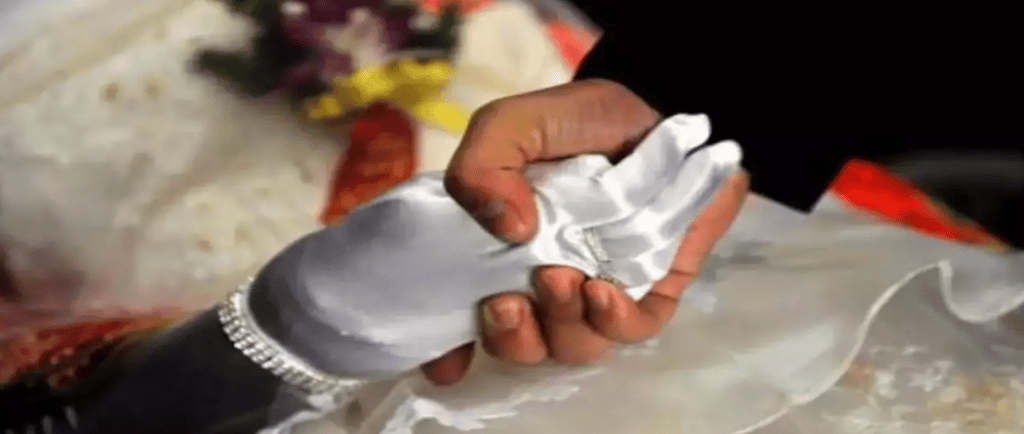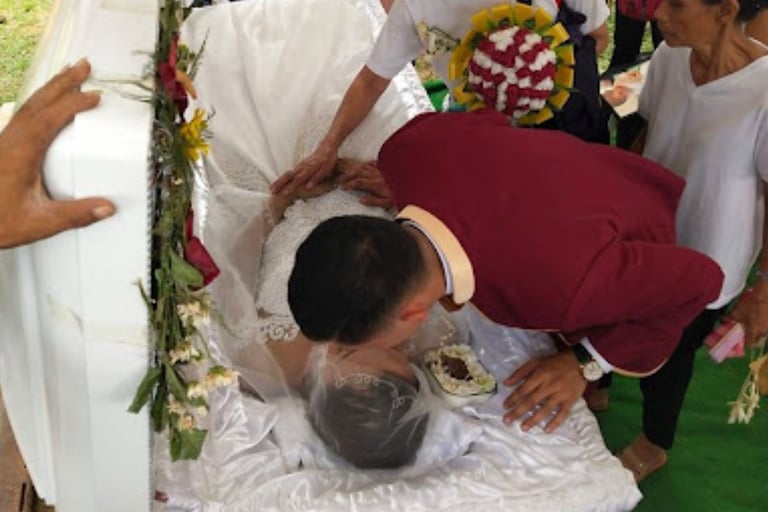The Intriguing Tradition of Chinese Ghost Marriages: Marrying the Dead
Discover the ancient practice of Chinese ghost marriages, where the deceased are wed to ensure peace in the afterlife, and explore its impact on modern society.
8/25/20243 min read


Chinese Ghost Marriages: An Ancient Custom with Modern Controversies
Ghost marriages, a tradition where a deceased person is married to another deceased person or, in some cases, a living person, have been a part of Chinese culture for thousands of years. This practice dates back to the Shang Dynasty (1600–1046 B.C.) and was even observed during the Three Kingdoms period. While ghost marriages were historically seen as a harmless custom, modern-day practices have raised significant ethical and legal concerns. This blog delves into the origins, cultural significance, and contemporary issues surrounding ghost marriages in China.
The Origins and Purpose of Ghost Marriages
Ghost marriages combine elements of marriage and burial rites. The practice originated from deep-seated cultural beliefs about the afterlife and family lineage. In Chinese culture, there is immense societal pressure to get married and produce offspring, with parents often playing a central role in selecting their children's spouses. This cultural expectation extends beyond life, with families arranging marriages for their deceased relatives to ensure they are not alone in the afterlife and can be buried in the family tomb.
The tradition also stems from superstitions and the fear of being haunted by the dead. According to Dr. Huang, an expert on ghost marriages from Shanghai University, the three primary reasons for these unions are: fear of haunting, the emotional closure for grieving parents, and the continuation of the family lineage in a patriarchal society.
The Modern Landscape of Ghost Marriages
Although the Chinese Communist government banned ghost marriages in 1949, the practice persists, particularly in rural areas of eastern China, such as Shanxi, Hebei, and Shaanxi provinces. Despite the ban, cultural beliefs about the necessity of ghost marriages for social and familial harmony remain strong. The fear of ghostly retribution, combined with the belief that dying unmarried brings bad luck to surviving family members, continues to drive the practice underground.
A notable example of a modern ghost marriage occurred in 2009 in Henan province. A young man named Li, who had died of leukemia, was "married" to a woman who was dying of kidney failure. Their families arranged a posthumous wedding and burial, fulfilling the cultural obligation to ensure both individuals were not left alone in the afterlife. This union allowed Li to be buried in the family grave, which would not have been permitted if he had died a bachelor.
When Tradition Goes Too Far
While ghost marriages may have once been harmless, modern-day practices have seen a darker side emerge. Due to the one-child policy and a cultural preference for male children, there is now a significant gender imbalance in China, with approximately 32.66 million more males than females. This disparity has increased the demand for female corpses, sometimes leading to unethical and criminal activities.
In some cases, desperate families resort to buying the bodies of recently deceased women to arrange ghost marriages for their unmarried sons. Wang Yong, an employee at a Shanxi province hospital, described "auction wars" where families bid on the bodies of young girls who are near death. This grim market has also led to several high-profile murder cases, kidnappings, and grave robberies. For instance, in 2016, a man in northwest China murdered two women with intellectual disabilities and sold their bodies for ghost marriages.
The theft of a woman's ashes in 2021 further highlighted the issue. The ashes of a woman who had taken her own life were stolen by funeral home staff and sold to a family to be "wed" to their deceased son. This incident sparked outrage and led to calls for stricter regulations against those involved in ghost marriages, including matchmakers and buyers.
The Global Context of Ghost Marriages
While China is the most well-known country for ghost marriages, it is not the only place where this practice occurs. Similar customs are observed in Sudan and parts of India, though to a lesser extent. Interestingly, France is one of the few countries that legally recognise posthumous marriages, albeit under strict conditions.
Watch our full video to explore these complexities further
Ghost marriages, an ancient Chinese tradition, reveal the deep-rooted cultural beliefs surrounding family, marriage, and the afterlife. While the practice may have originally served to provide comfort and uphold family honor, the modern-day implications raise serious ethical and legal concerns. As we continue to navigate the complexities of cultural practices and their place in contemporary society, it is essential to balance respect for tradition with the protection of human rights. Understanding these practices within their cultural context allows us to appreciate the diverse ways people around the world cope with death and the afterlife.
Book an online consultation below. Remember, it's never too early to talk about death.



